Artist:
Joachim Carlos Martini
Title:
Handel: Il Trionfo del Tempo e della Verità
Year Of Release:
2000
Label:
Naxos
Genre:
Classical
Quality:
FLAC (image + .cue, log, scans)
Total Time: 2:59:34
Total Size: 796 MB
WebSite:
Album Preview
Disc: 1
1. Part I: Son Dell'Overtura, HWV 46a: (Allegro) - Adagio - (Allegro) - Barockorchester Frankfurt/Joachim Carlos Martini
2. Part I: No.1 Chor And Soloists: Only To Delight Our Heart Aspires, And Ever Happy, Joy And... - Junge Kantorei/Barockorchester Frankfurt/Joachim Carlos Martini
3. Part I: No.2 Recitative: When I See My Image in The Glass I Wish It Were Carved Not In Fragile... - Claron McFadden
4. Part I: No.3 Aria: Andante: Faithful Mirror, in You I Dream Of The Splendour Of My Years, Yet One... - Claron McFadden
5. Part I: No.4 Recitative: I, Who Am Pleasure, Swear That You Will Always Be Beautiful - Elisabeth Scholl/Claron McFadden
6. Part I: No.5 Aria: Andante: A Dark Spirit And Black Sorrow Never Come Singly, For One Alone... - Elisabeth Scholl
7. Part I: No.6 Recitiative: And I, Who Am Time - Nicholas Hariades/Peer Abilgaard
8. Part I: No.7 Aria: Andante: If Beauty Loses Her Charm, If She Falls Or Dies, She Never Returns... - Peer Abilgaard
9. Part I: No.8 Recitative: Then Let Us Take Up Arms And See Which Is The Strongest, Pleasure... - Elisabeth Scholl/Claron McFadden/Nicholas Hariades/Peer Abilgaard
10. Part I: No.9 Aria: Allegro: One Band Of Pleasures Keeps Watch Over My Thoughts, The Other Will... - Claron McFadden
11. Part I: No.10 Recitative: The Giants Of The Sun Fell To Earth On Account Of Me, And Does Fragile... - Nicholas Hariades
12. Part I: No.11 Aria: Larghetto: You Tombs That Hold So Many Beauties, Open, Show Me If Any Light... - Nicholas Hariades
13. Part I: No.12 Chor: Largo: They Are Ghosts Of Sorrow, Skeletons Of Horror, And Nothing More Remained - Junge Kantorei/Joachim Carlos Martini
14. Part I: No.13 Recitative: Your Counsels Are Too Cruel, Pleasures Alone Are The Sons Of Youth. - Elisabeth Scholl
15. Part I: No.14 Duet: (Andante Ma Non Troppo): It Is Vanity To Wish, in The Flower Of One's Years... - Claron McFadden/Elisabeth Scholl
16. Part I: No.15 Recitative: The Limit Of Mortal Life Comes At A Glance. For A Short Time You See... - Peer Abilgaard/Claron McFadden
17. Part I: No.16 Aria: Andante Allegro: A Thought Inimical To Peace Made Time Fickle And Greedy... - Claron McFadden
18. Part I: No.17 Recitative: Fool, You Deny Time, And Now He Devours Part Of Your Beauty. Tell me... - Peer Abilgaard/Elisabeth Scholl/Claron McFadden
19. Part I: No.18 Aria: Andante: Man Is Born, But Born A Child: The Year Is Born, But W. White Hair... - Nicholas Hariades
20. Part I: No.19 Chor (Andante): Man Always Destroys Himself; The Year Always Renews Itself... - Junge Kantorei/Joachim Carlos Martini
Disc: 2
1. Part I: Interlude: No.20 Con (Andante Allegro) - Barockorchester Frankfurt/Joachim Carlos Martini
2. Part I: Interlude: No.21 Soloists And Chor: Andante Allegro: To Live And Not To Love, To Love and... - Claron McFadden/Elisabeth Scholl/Nicholas Hariades/Peer Abilgaard
3. Part I: Interlude: Sinf: Allegro - Barockorchester Frankfurt/Joachim Carlos Martini
4. Part II: No.23 Recitative: This Is My Palace, Here You See Me in Various Forms: Crowned W. Roses... - Elisabeth Scholl
5. Part II: No.24 Sonatina: Allegro - Presto - Barockorchester Frankfurt/Joachim Carlos Martini
6. Part II: No.25 Sonatina: (Adagio-Andante) - Barockorchester Frankfurt/Joachim Carlos Martini
7. Part II: No.26 Recitative: Silence! What Sound Do I Hear? - Claron McFadden
8. Part II: No.27 Aria: Andante: A Graceful Boy Fair Delight Arouses in Flattering Sound. And, Bid... - Elisabeth Scholl
9. Part II: No.28 Recitative: In His Right Hand Are Wings And W. This Hand He Makes Works That Are... - Claron McFadden
10. Part II: No.29 Aria: Allegro Ma Non Troppo: Let Time Come And W. Funereal Wings Take These Dear... - Claron McFadden
11. Part II: No.30 Chor: (Allegro, Ma Non Troppo): O Time, Father Of Sorrow, Be Far From Our Hear... - Junge Kantorei/Joachim Carlos Martini
12. Part II: No.31 Ritornello: (Allegro, Ma Non Troppo) - Barockorchester Frankfurt/Joachim Carlos Martini
13. Part II: No.32 Aria: Larghetto (Allegro): Man Believes That Time Sleeps When He Spreads His... - Peer Abilgaard
14. Part II: No.33 Recitative: You Believe Him Far Away, And Time Is W. You. Pleasure, I Will Not... - Nicholas Hariades/Claron McFadden
15. Part II: No.34 Aria: Andante (Allegro): Fool, Will You Alone Presume That Time Does Not Fly For... - Nicholas Hariades
16. Part II: No.35 Recitative: Have You Seen The Palace Of Pleasure? Then Come. Seek True Pleasure... - Peer Abilgaard/Nicholas Hariades
17. Part II: No.36 Qt: Allegro: If You Are No Longer A Minister Of Suffering. Then To See Where True... - Claron McFadden/Elisabeth Scholl/Peer Abilgaard/Nicholas Hariades
18. Part II: No.37 Recitative: If False Pleasure's Fabled Show You Once Saw, Lo, I Draw Back The... - Nicholas Hariades
19. Part II: No.38 Aria: Andante: Close, Close Your Lovely Eyes; Turn Far Away Your Thoughts. Or For... - Elisabeth Scholl
20. Part II: No.39 Recitative: Into Three Parts Divided Are The Hours Of Your Living; And See... - Nicholas Hariades
21. Part II: No.40 Aria: Larghetto: I Hoped To Find Pleasure in Truth, But I Still Do Not See It... - Claron McFadden
22. Part II: No.41 Recitative: It Is Vain To Live in Sorrow; If You Seek And Call Me, I Am Present. - Elisabeth Scholl
23. Part II: No.42 Aria: (Andante): You Swore Never To Leave Me, Or Sorrow Would Be Your Reward... - Elisabeth Scholl
24. Part II: No.43 Recitative: If A Sick Man Turns His Gaze To The Rays Of The Sun And Cannot Stand... - Nicholas Hariades
25. Part II: No.44 Aria: Adagio: I Would Have Two Hearts in My Bosom: One To Turn To Repentance... - Claron McFadden
26. Part II: No.45 Recitative: I Would Swear That You Close Your Eyes Before The Mirror Of Truth! - Peer Abilgaard/Claron McFadden
27. Part II: No.46 Aria: Larghetto: He Cares No More For The Dark Valley, Who From The Mount Of... - Peer Abilgaard
28. Part II: No.47 Recitative: It Is An Obstinate Error To Leave The Safe Guide To Whom The Right... - Nicholas Hariades
29. Part II: No.48 Aria: Allegro: Foolish Is That Helmsman Who Will Not Change Course And Knows... - Nicholas Hariades
30. Part II: No.49 Recitative: You Spoke The Truth And, Though Late, I Understood, Yet in My Grief... - Claron McFadden
31. Part II: No.50 Qt: Andante: I Want Time To Decide. I Am W. You. And Counsel, But Counsel Is... - Claron McFadden/Nicholas Hariades/Peer Abilgaard/Elisabeth Scholl
32. Part II: No.51 Chor: Andante Allegro: Before You Turn To Dust, Follow The Good And Change... - Junge Kantorei/Joachim Carlos Martini
Disc: 3
1. Part III: No.52 Sinf: Andante: Da Capo. - Barockorchester Frankfurt/Joachim Carlos Martini
2. Part III: No.53 Recitative: in The Palace Where Pleasure Resides Lies A Fair Garden. There A Dark... - Claron McFadden/Peer Abilgaard
3. Part III: No.54 Aria: Allegro: Leave The Thorn, Pluck The Rose, You Go Seeking Your Own Sorrow... - Elisabeth Scholl
4. Part III: No.54a Sarabande: Improvisation (Almira, Hamburg 1704, HWV 1/4) - Barockorchester Frankfurt/Joachim Carlos Martini
5. Part III: No.54b Aria: Sarabande: Leave The Thorn, Etc. (Il Trionfo Del Tempo E Del Disinganno...) - Elisabeth Scholl
6. Part III: No.55 Recitative: W. Notes Too Clear Truth Calls Me. Courteous Disillusion... - Claron McFadden/Peer Abilgaard
7. Part III: No.56 Aria: Largo Poco Piani (Presto): I Want To Change My Intentions And I Want To Say... - Claron McFadden
8. Part III: No.57 Recitative: Now That My Right Hand Holds The True, Immortal Mirror, You Will Fall... - Claron McFadden/Elisabeth Scholl/Peer Abilgaard
9. Part III: No.58 Aria: Andante Allegro: He Who Once Was A Fair Women's Cousellor Shall Fall To... - Peer Abilgaard
10. Part III: No.59 Recitative: But What Do I See? What Behold? I Thought I Was Beautiful And I Am... - Claron McFadden
11. Part III: No.60 Aria: Poco Adagio: A Richly Laden Vessel On Its Course Casts Into The Sea... - Claron McFadden
12. Part III: No.61 Accompanied Recitative: Yes, Fair Penitence, While I, Repentant, Weep Bitterly... - Claron McFadden
13. Part III: No.62 Aria: Andante: The Fine Tears Of Dawn (Bathed in Gold,) Are A Pearl in Every... - Nicholas Hariades
14. Part III: No.63 Recitative: Pleasure, Who Once Lived W. Me, Look Again At The Truth in This... - Claron McFadden
15. Part III: No.64 Aria: Vivace: As A Cloud That Flees W. The Wind From You I Fly, Angry And Bitter... - Elisabeth Scholl
16. Part III: No.65 Accompanied Recitative: Now If The Truth Of The Eternal Sun Brings Light... - Claron McFadden
17. Part III: No.66 Aria: Largo E Staccato: This Heaven's Minister Elect No More Shall See In My... - Claron McFadden
18. Part III: No.67 Con: Allegro - Adagio (Op.4, No.4, in F, HWV 292) - Barockorchester Frankfurt/Joachim Carlos Martini
19. Part III: No.68 Chor: (A Tempo Giusto): Alleluia - Junge Kantorei/Joachim Carlos Martini
This almost unknown, large scale (almost 3 hour) oratorio, The Triumph of Time and Truth, was composed by Handel in Rome in 1707 and revised by him for performances in London’s Covent Garden in 1737 (the version recorded here) and then translated into English, revised again and presented, with new additions, in 1757. The performance recorded here contains, probably, everything Handel composed for this work in its various incarnations, and then some: A brief organ concerto by the composer is added to the second part’s introduction and another pops up before the final chorus; a number from the serenata Acis & Galatea is inserted at one point; and a Saraband for two harpsichords from Handel’s Almira is used as an interlude in Part III. Furthermore, some will recognize the beautiful aria from the original, “Lascia la spina,” which became “Lascia ch’io piango” in Rinaldo, set to another text and very different music.
All that aside, this windy work, in which four characters (here, two sopranos and two male altos) stand for Beauty, Pleasure, Time and Disillusion and duke it out until each characteristic opts to serve a better, higher cause, is definitely worth hearing. It contains the appealing, straighforwardly Baroque (if there is such a thing) style of Handel’s early Italian cantatas, mixed with his later sophisticated choral writing and dramatic recitatives. The singers have plenty to do. Both sopranos–Beauty and Pleasure, who sound uncomfortably alike and therefore cut somewhat into the drama–are excellent, with particular kudos going to Claron McFaddon’s Beauty for her lovely trills (especially in #29, with continuo), and both male altos are agile, involved, and just a bit weak in their lower registers.
The chorus, which is very big and appears to have been recorded from a far greater distance than the soloists, is splendid, as is the orchestra under Joachim Carlos Martini’s leadership. The resonant acoustic makes the soloists sound a bit lonely, but otherwise, no complaints. This remains the only recording of the 1737 omnibus version of the work, and Handel lovers should flock to it. –– ClassicsToday, Robert Levine
Related Releases:
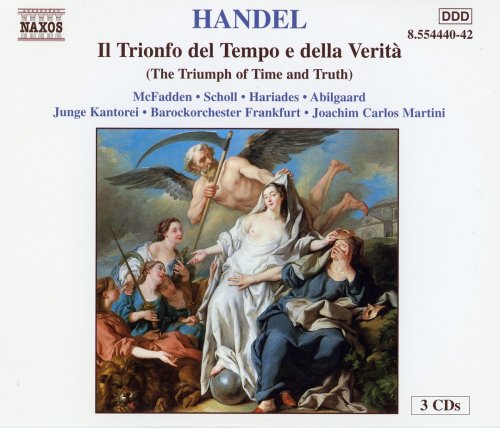
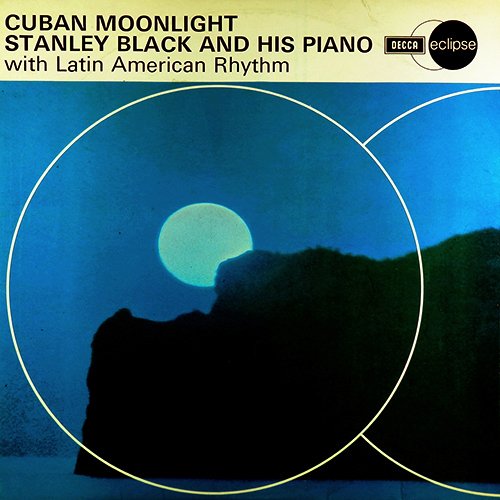

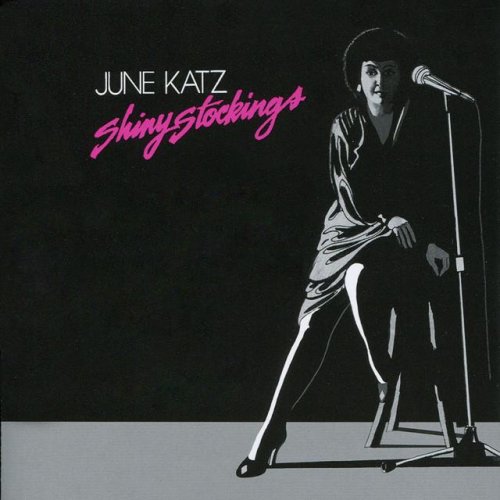
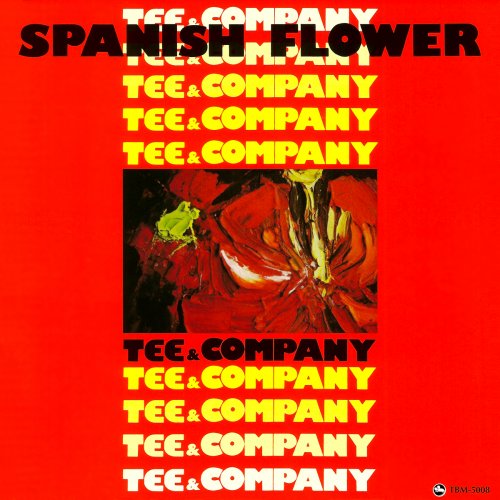
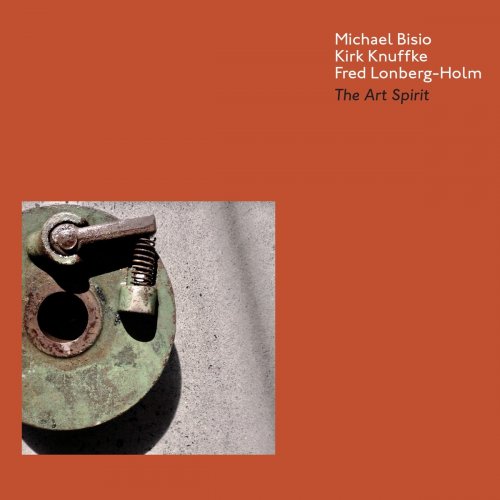
![Jeremy Pelt - Our Community Will Not Be Erased (2026) [Hi-Res] Jeremy Pelt - Our Community Will Not Be Erased (2026) [Hi-Res]](https://www.dibpic.com/uploads/posts/2026-02/1771945030_folder.jpg)
![Larry Coryell - Major Jazz Minor Blues (1998) [CDRip] Larry Coryell - Major Jazz Minor Blues (1998) [CDRip]](https://www.dibpic.com/uploads/posts/2026-02/1771860317_5.jpg)
![Ex Novo Ensemble - Claudio Ambrosini: Chamber Music (2020) [Hi-Res] Ex Novo Ensemble - Claudio Ambrosini: Chamber Music (2020) [Hi-Res]](https://img.israbox.com/img/2026-02/22/z541qb9ul4q390uxlw1d9iak3.jpg)
